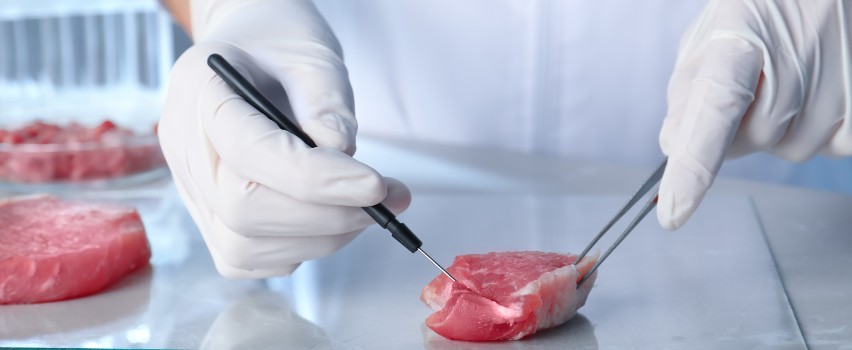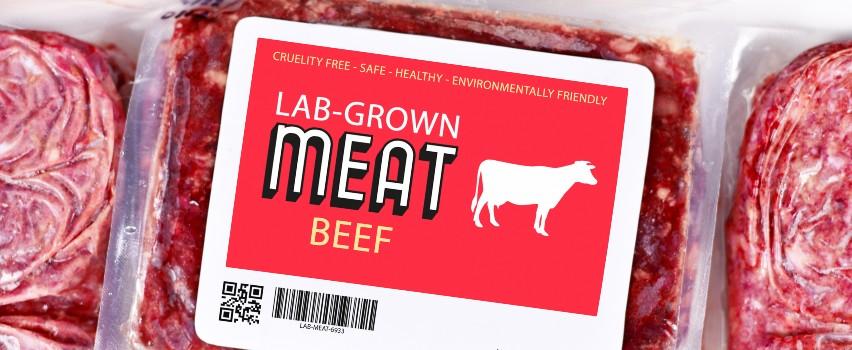Cultured meat is on the rise - what does this mean for butchery?
You may or may not have heard of ‘cultured’ meat. No, it’s not a specific term for a particularly prestigious cut. It’s actually one of a number of names now being used to refer to meat that’s not been harvested from an animal’s carcass using butchers knives and butchers spares, but instead grown from cells taken from a still-living animal. Though it was once firmly in the realm of science-fiction, it’s now become a reality - and an increasingly more tangible one, at that.
Initially, that might not seem like such a fantastic development for the butchery industry. In recent years, our sector has been dealing with an increasingly difficult question - namely, in the face of increasingly climate-conscious consumers, how do we reckon with the fact that a central crux of our industry is fundamentally environmentally unfriendly?
Now, that’s not to say that our entire industry is irredeemable - that would be a gross oversimplification, especially since sustainability has become an increasingly pressing concern on the industry’s agenda. Most seasoned butchers already have plenty of experience in answering questions about sustainability around meat products, for which the UK has a particularly impressive record.
The most respected butchers take particular care in where they source their meat, choosing suppliers with high welfare standards and lower emissions. This sort of provenance is usually indicated by the label, and that sustainability assurance is more than enough for many consumers. But not too long from now, even the most stringent of sustainability assurances might not be enough to cut it for other customers. And that’s where lab-grown, or ‘cultured’ meat comes in.
What is cultured meat?
As we touched on above, cultured meat isn’t harvested from a dead animal, but rather created by taking muscle cells from a living cow, and then cultivating them so that they multiply. This eventually creates muscle tissue, which can be eaten in exactly the same way as normal meat. In fact, it’s biologically exactly the same.
It takes 20,000 of these cells to create a regular hamburger. That might sound quite intensive, but is probably less so than you might think. Ivy Farm is one start-up in Oxford that’s already looking at growing this cultured meat on an industrial scale, which would thereby remove 170,000 pigs from the national supply chain. It’s done its research on public opinion, too. According to Ivy Farm, more than two thirds of people in their survey said that they’d happily try cultured meat, and about half of the respondents said that they’d buy it.
As things stand, Ivy Farm has predicted that ‘slaughter-free’ cultured meat could be found on consumer’s plates as early as 2023, in the form of sausages and meatballs. There’s speculation that ‘clean meat’, as it’s sometimes referred to, could even begin to overtake vegan alternatives by 2025. Others predict that within the next 20 years, over half the burgers, steaks and chicken breasts we eat will be lab-grown. Now, that’s still technically speculative at the moment, and it’s strongly dependent on one major hurdle, which we’ll explore in just a moment.

So, where does all this leave butchers?
All these developments probably don’t sound all that favourable for butchers so far. Further impacts to the industry are likely to hit traditional high street butchers especially hard, made all the more devastating by the fact that many are still trying to recover from the repercussions of the pandemic (the after-effects of which are still likely to last for some years yet).
But while individual butchers might struggle to cope with the such a dramatic change, it doesn’t necessarily need to be the death-knell of the entire industry. While it’s certainly likely to have a seismic impact, UK butchery - and the food sector as a whole - has already shown itself capable of adapting.
Sainsbury’s is one major which has already opened its first meat-free butchers, showcasing ‘meat’ products that were in fact made with mushroom, jackfruit, and even pea protein. Research carried out by Sainsbury’s found that over a quarter of respondents (28%) had served plant-based foods to their family, friends or partner without telling them it was plant-based. Of those respondents, only 8% said that their diner cottoned on. So already, we’re at the stage where plant-based alternatives are almost indistinguishable from the real thing. And if butchers can start adapting to selling plant-based foods, it bodes well for the sector’s ability to pivot to lab-grown meat, too.
Having said all that though, you’ve probably already worked out the biggest barrier facing lab-grown meat so far. Beyond the practicalities and logistics of manufacturing cultured meat on an industrial scale, the most significant obstacle by far is cultural. While the taste of slaughter-free meat might be identical to that of regular meat, lots of consumers are still very wary of the idea of what some refer to as “Frankenfoods”, in much the same way that genetically modified crops are still the subject of controversy. Essentially, this line of thinking centres on the idea that we’re ‘messing about’ too much with nature, and there are still countless people who don’t like the idea that scientists have had a hand in what’s ended up on their plates.
The stigma around cultured meat is also based in a separate but closely related issue, in that traditional forms of meat - and red meat in particular - is still strongly associated with traditional masculine values. That means it’s likely to face some very robust resistance from large sections of society, and that’s not a barrier that will be surmounted overnight.
Without the public’s full support, cultured meat still faces significant challenges getting onto consumers’ plates. And one way or another, that level of support won’t be forthcoming for quite some time yet. It also has to earn more formal approval in the form of certifications - while Singapore rubber-stamped cultured meat for sale in December 2020, Ivy Farm is still holding ongoing talks with the Food Standards Agency, which will need to authorise it before it can be sold here in the UK.
There may come a day where the butchery industry is forced to reckon with a fundamental change in its future. For now though, consumer preference for traditional forms of meat means it looks like the profession isn’t going anywhere just yet.
That’s probably good news for you, and it’s certainly good news for us here at Butchers Equipment Warehouse! We stock a huge range of butchers knives and sharpeners, as well as a broad choice of butchers machinery and butchers spares and consumables, ideal for any private or commercial kitchen. If you need any advice or you’re looking for anything in particular, don’t hesitate to give us a call on 01254 427761. We’re here to help!




